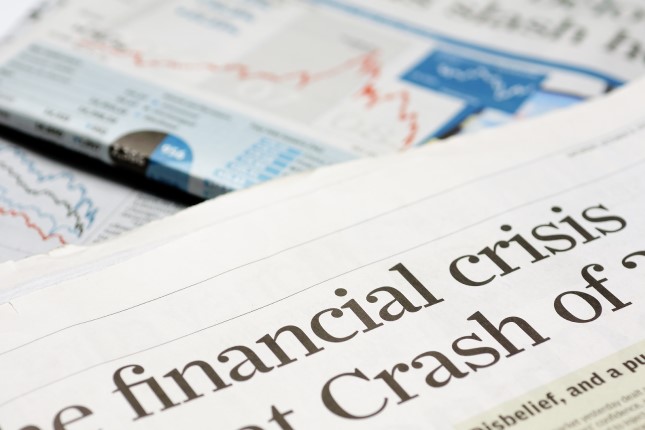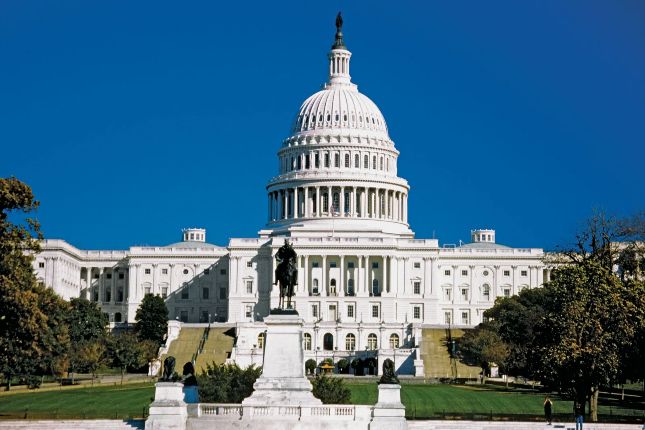The downgrading of the long-term credit rating of the United States by Fitch Ratings Agency on Tuesday is a significant milestone in the historic economic and financial decline of US imperialism, together with the deepening crisis within the American state.
The downgrade reflects the massive surge in the US federal debt, which has been driven by a series of bank and corporate bailouts accompanied by runaway military spending to finance endless wars.
The Fitch downgrade was from AAA rating to AA+, bringing it into line with a similar downgrade by Standard & Poor’s in 2011 following a conflict in Congress during the Obama administration over the lifting of the debt ceiling.
Speaking on behalf of Wall Street, Fitch demanded that the US government respond to the the growing debt crisis with an intensified assault on the social position of the working class through the slashing of social spending.
Fitch complained that “there has been only limited progress in tackling medium-term challenges related to rising Social Security and Medicare costs due to an aging population.”
In other words, while bank bailouts and military spending may have caused the debt crisis, Wall Street’s solution is to impoverish and immiserate the vast majority of the population.
The explosion of US government debt is graphically revealed by forecasts of its size by the Congressional Budget Office (CBO).
In 2007, just before the global financial crisis, when illusions in the ongoing strength of the US economy were at their height, the CBO predicted that the federal debt held by the public would fall to 22 percent of GDP in a decade.
It is now around 100 percent, with the CBO predicting that it will rise to 107 percent in 2031.
The growth of debt has been fueled by the deepening crisis of the American economy and financial system.
The financial crisis of 2008 was met with the outlay of hundreds of billions of dollars in corporate bailouts, combined with the injection of money into the financial system by the Federal Reserve under its quantitative easing program. Hundreds of billions of dollars more were handed to the corporations in response to the COVID crisis, as the Fed pumped still more money into the financial markets.
Responding to a series of banking panics this year, the Biden administration effectively implied that all bank deposits would be backstopped by the federal government.
And on top of this, the US has lifted its military spending to record heights, with more increases to come, coupled with subsidies to corporations to reshore their operations to the US, particularly in high-tech areas, as part of its economic warfare against China.
Announcing the decision, Fitch said had it been made because of a “steady deterioration in the standards of governance of the past 20 years.” As if to underscore the point, the announcement was made on the same day that four indictments were issued against former president Trump over his efforts to overturn the 2020 election result.
A New York Times report said Biden administration officials had been briefed ahead of the downgrade, where they made their opposition known, and “Fitch representatives repeatedly brought up the Jan. 6, 2021 insurrection as an area of concern about US governance.”
In a Financial Times column largely devoted to extracts from the Fitch report, the author noted at the conclusion that “the FT’s metadata tool suggested we tag this under ‘emerging markets.’”
The Fitch downgrade brought strident denunciations from officials in the Biden administration, describing it as “off base,” “absurd” and “widely and correctly ridiculed.”
US Treasury Secretary Janet Yellen said the decision was “arbitrary and based on outdated data.”
“Fitch’s decision does not change what Americans, investors, and people all around the world already know: that Treasury securities remain the world’s pre-eminent safe and liquid asset, and that the American economy is fundamentally strong,” she said.
If that really were the case, then the top financial official in the government would not have to say so.
The reality is that the US financial system has been wracked by a series of crises over the past decade and a half.
In 2008, the banking system was on the brink of a meltdown. In March 2020, the US Treasury market froze, such that for several days there were virtually no buyers for US government debt, supposedly the safest and most liquid asset in the world. And in March of this year, the US recorded three of the four largest banking failures in its history.
There are also decisive longer-term processes at work.
In August 1971, the Bretton Woods Agreement—one of the key planks of the post-war monetary system—collapsed when the US removed the gold backing from the US dollar, which had been redeemable at the rate of $35 per ounce.
Since then, the global financial system has operated on the basis of the dollar, functioning as a fiat currency. Not backed by real value in the form of gold, its pre-eminence has depended on two factors: the political stability of the US as the major capitalist power and the strength of its economy and financial system.
Both of these foundations are now in an advanced state of decay.
This situation has major economic and political ramifications. The US has only been able to organise corporate bailouts, pump seemingly endless amounts of money into the financial system and lift military spending to ever-greater records—doing what no other government can do—because of the dollar’s global role.
The Fitch decision is another sign this position is under threat. There are moves by other powers, including China, Brazil, India and Saudi Arabia, to settle trade deals outside the dollar.
Central banks are increasing their purchases of gold as a more secure store of value, and there is the ever-present threat of a crisis in the $25 trillion US Treasury market resulting from a shift out of US government debt.
The US ruling class is responding to this deepening crisis through the escalation of a “war on two fronts:” against the working class at home and Washington’s rivals abroad.
The downgrade will be used, as Fitch indicates with its reference to rising Social Security and Medicare costs, to accelerate the attack on the social position of the working class.
And not only in the US. As the Australian Financial Review noted, the US downgrade is a “wake-up call to other nations in a fiscal mess,” a description that can be applied to governments around the world whose debts have risen to record level
The global eruption of US imperialism, expressed most nakedly in the escalation of the war in Ukraine, marks an effort by the United States to shore up its global hegemony, and the preeminence of the US dollar, through military means.
Source: World Socialist Web Site.
































